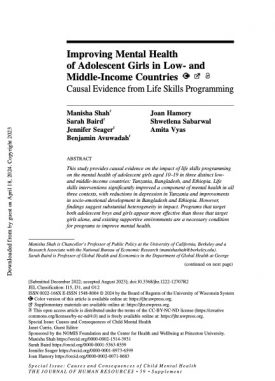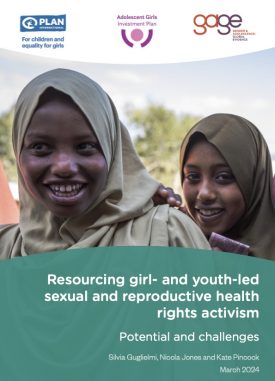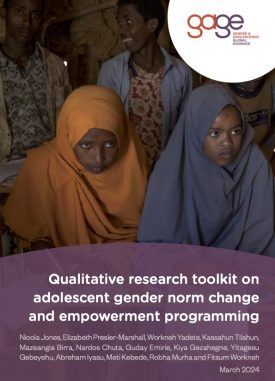Teaching and learning for life skills development: Insights from Rwanda’s 12+ programme for adolescent girls
Related publications
Journal articles
19.04.24
Improving mental health of adolescent girls in low- and middle-income countries: Causal evidence from life skills programming
Psychosocial well-being
Cross-country
Read more
Improving mental health of adolescent girls in low- and middle-income countries: Causal evidence from life skills programming
Read more
Reports
29.03.24
Resourcing girl- and youth-led sexual and reproductive health rights activism: Potential and challenges
Health, Nutrition and Sexual and Reproductive Health (SRH)
Cross-country
Read more
Resourcing girl- and youth-led sexual and reproductive health rights activism: Potential and challenges
Read more


